Vermicelli or rice noodles are a popular food in every family. Many famous dishes associated with each region are made from vermicelli such as vermicelli with fermented shrimp paste, Hue beef vermicelli, vermicelli with fermented shrimp paste, etc.
Not only is rice noodles easy to eat, they also contain many health benefits. However, not everyone can eat this food.
Vermicelli is a familiar food loved by many people.
Health benefits of noodles
Lao Dong newspaper quoted Healthbenefitstimes as saying that rice noodles have no fat and low carbohydrate content, which will help maintain weight. Carbohydrates from noodles are converted into energy without causing fat accumulation, while creating a feeling of fullness without gaining weight. In addition, this food can also provide effective energy through the best metabolism.
Promote blood circulation
Rice noodles provide iron to the body, helping blood circulation. This ensures oxygen is supplied to body parts and supports normal functioning.
Stronger bones
Besides iron, rice noodles also possess other beneficial minerals such as calcium. Calcium absorption will help improve bone health and also reduce the risk of osteoporosis. So, eat rice noodles regularly to promote stronger bones.
Useful for diabetics
Diabetes is caused by increased blood sugar levels. Low glycemic index rice noodles can help control blood sugar levels and prevent diabetes.
Eliminate toxins
Rice noodles contain carbohydrates that help eliminate toxins, waste, and other unwanted substances. Therefore, eating rice noodles regularly is an effective way to eliminate and purify the body.
Although it brings many health benefits, not everyone can eat noodles.
People who should not eat noodles
People with gastritis should not eat noodles.
Thanh Nien newspaper quoted specialist doctor Huynh Tan Vu, Head of the Daytime Treatment Unit at the University of Medicine and Pharmacy Hospital in Ho Chi Minh City, saying that vermicelli is a food group that is not suitable for people with digestive problems, because vermicelli is made from rice flour, soaked in water for about a day before making to let the flour expand.
During this time, the starch will ferment, so when eating, the patient is prone to bloating, flatulence, and indigestion. Therefore, people with gastritis or gastroduodenal syndrome should limit eating.
If you are sick, you should not eat noodles.
According to Dr. Vu, when you are sick, have a fever, or feel unwell, you should not eat vermicelli, because at this time your body is tired and your digestion is not as good as usual. In addition to rice starch, which is the main ingredient in making vermicelli, manufacturers can also add additives that may not be safe, such as fluorescent powder to brighten, bleach to whiten, borax to create toughness and preserve for a long time, etc.
Children and pregnant women
Due to concerns about chemicals in vermicelli, children and pregnant women should also be cautious. However, if the vermicelli source is clean and safe, or the family can make the vermicelli themselves, they can still eat it with peace of mind. When eating vermicelli, you should choose reputable and quality places to buy it.
How to identify unsafe noodles
Online Knowledge Magazine quoted Associate Professor Dr. Nguyen Duy Thinh - a biotechnology expert, saying that Tinopal in vermicelli is easily recognized because this substance itself is fluorescent, and can emit light in the dark.
Therefore, the simplest way is to look at the color of the noodles. Noodles made from pure rice have opaque white or dark colored noodles. On the contrary, noodles containing borax or preservatives will have a clear, bright white color and the noodles will be shiny.
Vermicelli without borax is a bit crumbly, easy to break and feels a bit sticky and soft to the touch. Vermicelli with borax is tougher, crunchier and harder to break.
Vermicelli that does not use borax and chemicals will turn sour and rancid if left for a while or overnight. Vermicelli that does not go bad after 2-3 days and has no taste when chewed is the type that uses excessive amounts of borax and chemicals.
Experts recommend that consumers be more cautious with fresh vermicelli and cake products that are white and shiny under light. When buying vermicelli, consumers should use an ultraviolet light like a money detector to shine on it. If the vermicelli glows, it means it is contaminated with Tinopal.
To test for borax, consumers can use a commercially available test strip or add turmeric powder. If the noodles turn gray, it contains borax.
According to VOV
Source link


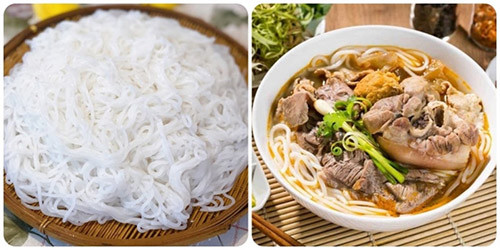



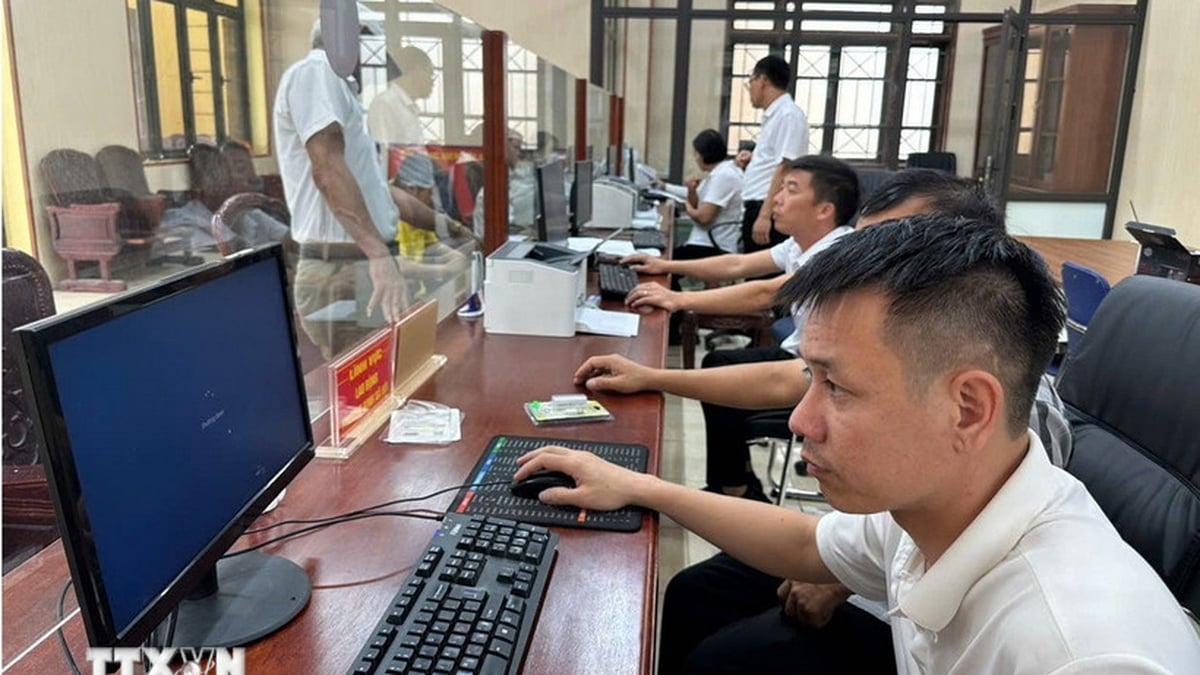
























![[Photo] Signing of cooperation between ministries, branches and localities of Vietnam and Senegal](https://vphoto.vietnam.vn/thumb/1200x675/vietnam/resource/IMAGE/2025/7/24/6147c654b0ae4f2793188e982e272651)







































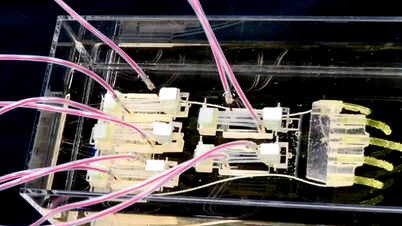
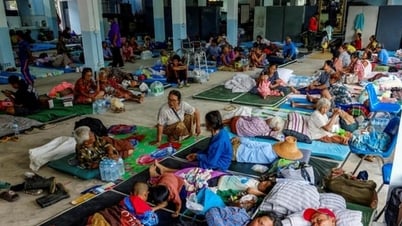



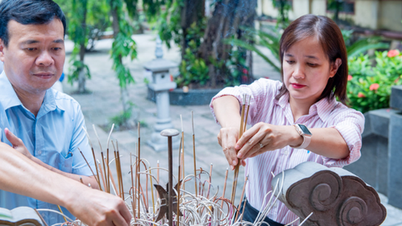




























Comment (0)